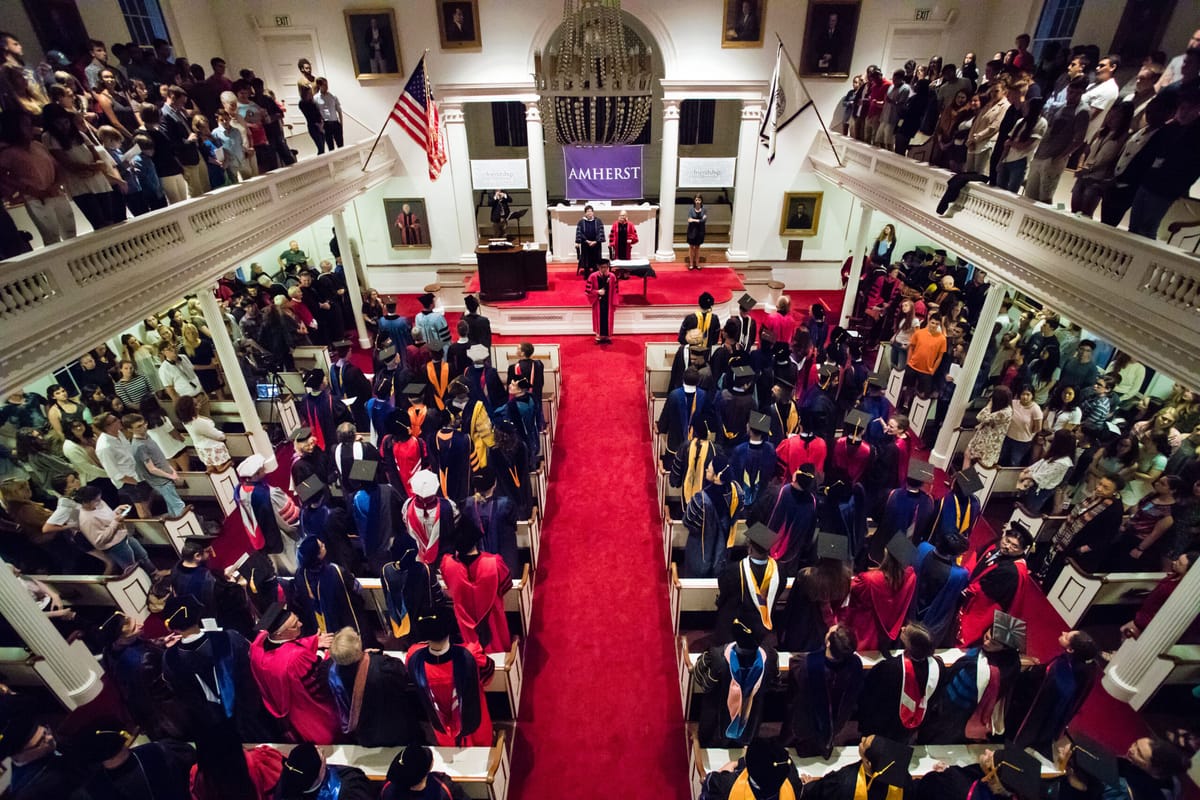Faculty Revisits Policy on Sexual Relations Between Professors and Students

The college faculty is considering a proposal to ban sexual relationships between students and faculty members. The deliberation comes after the #MeToo movement and the nation’s reckoning with sexual assault and sexual misconduct.
The policy on sexual student-faculty relationships outlined in the Student Code of Conduct was last voted on in 1992. The current policy states that the college “discourages consensual sexual relationships between faculty members and students,” but does not ban them altogether. It does require that a faculty member “remove him or herself from any supervisory, evaluative, advisory or other pedagogical role involving a student with whom he or she has had or currently has a sexual relationship.”
According to Provost and Dean of Faculty Catherine Epstein, a letter from a faculty member asking to revisit the policy inspired the proposed change. Faculty members met on Tuesday, Nov. 5 to discuss the prospect of changing the policy.
Many colleges have recently enacted bans on student-faculty relationships. Smith College banned relationships between faculty or staff and students in 2017. In April last year, UMass Amherst announced a ban on student-faculty relationships, stating that their goal is to “provid[e] a professional and supportive learning environment for our students and employees where all decisions about work and academics are made fairly and without conflicts of interest.”
Hampshire College’s policy on student-faculty relationships is very similar to Amherst’s current one, stating that “[Hampshire] strongly discourages consensual sexual or romantic relationships between employees or third parties and students, and such relationships are not allowed where an employee or a third party has a professional evaluative, advisory or supervisory responsibility with a student.”
“I think that Amherst and other schools are thinking about these issues now in a way that they weren’t 30 years ago,” Epstein said.
According to Epstein, the primary reason for the ban is the impact of student-faculty relationships on students’ education. She cites concerns about whether a student can have a good educational experience “when other students are having these relationships.”
While there isn’t a consensus among the faculty, Epstein noted that it can be “really detrimental to the educational experience of students if these kinds of relationships are going on,” she said. “There’s also a concern that it limits access to the curriculum, because individuals will avoid professors, or a professor could theoretically start a relationship with a student and that would mean that the student really shouldn’t take a class with that professor.”
Amherst’s status as an undergraduate-only institution also informs the proposed ban. At large universities, professors and graduate students often share relatively small age gaps. Amherst professors and students, on the other hand, tend to have large age differences.
“There is a whole issue with undergraduates about whether there really is such a thing as a consensual sexual relationship given the age disparity,” Epstein said. “The power dynamic is always going to be so dramatic in this sort of situation, and that is a major concern.”
Student Health Educator Sasha Williams ’22 echoed Epstein’s concern, noting that the power difference between students and professors can lead to a negative educational environment.
“Being in a relationship with someone who has sway over your education plays into certain power dynamics,” she said.
According to Epstein, Amherst’s proposed ban was not inspired by the #MeToo movement, unlike Smith College’s, which directly references the movement in their ban. The push in higher education to ban student-faculty relationships began before the #MeToo movement, Epstein said. The proposed ban is not in response to any specific incident at the college, she said, but rather a result of concerns among the faculty about preserving the college’s educational environment.
Amherst has faced major controversies concerning violations of sexual respect in the past, though — to public knowledge — none related to student-professor relationships. In 2012, the college made national news when Angie Epifano, a former member of the class of 2014 who left the college before graduating, published an account of her rape, the subsequent trauma and the lack of support she received from the college in The Student. The piece immediately sparked a conversation both nationally and on campus about how institutions treat survivors of sexual assault, eventually putting a new importance on Title IX, the statute prohibiting discrimination on the basis of sex at institutions receiving federal funding. This led to the hiring of the college’s first full-time Title IX coordinator, Laurie Frankl, and the establishment of the Peer Advocates and Sexual Respect Task Force.
However, many students remain dissatisfied. Despite strides in institutional initiatives spotlighting the issue of sexual respect, students continue to encounter incidents of sexual misconduct during their time at Amherst. Recent Clery reports, which detail annual crime statistics, have shown a steady increase in violations of sexual respect reported to the Title IX office. A 2017 op-ed about “sexual respect on campus five years after Angie Epifano’s testimony” detailed cases of sexual assault on campus in which the victim wasn’t afforded the proper support, even with changes made to the system around reporting sexual misconduct.





Comments ()